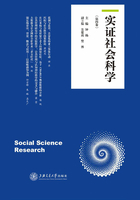
Resisting or Pleading:the Diversified Collective Actions by the Urban Homeowners
Abstract: The housing reform that began in 1998 in China, not only is composed of part of the whole economic reform project, but also a kind of significant dynamics to impel social transition.It, in the form of privatizing property rights, has led to the social class differentiation, which farther shapes the characteristics of collective actions mobilized by houses owners. Fieldwork in Shanghai finds that owners in the communities of “commercialized apartment” and “government-selling apartment” respectively launched various kinds of collective actions, the former acting in contention and the later being noncompliance.This paper tries to account for, from the perspective of property right's source, such a difference.The case study reveals that under the situation of various ownership sources, either from market or government, the distinctive state-market-owner's relationships and their interactive patterns led to two different type of collective action.
Key words: urban housing owners, collective action, house ownership, commission of housing owners